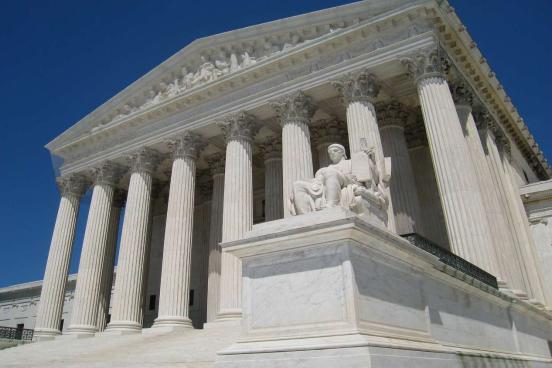US Supreme Court vacates decision that upheld Alaska’s draconian campaign contribution limits

WASHINGTON – The U.S. Supreme Court Monday vacated a federal appeals court decision that had upheld Alaska’s draconian campaign contribution laws. The high court also ordered the appeals court to revisit the ruling to determine whether Alaska’s laws are consistent with the Supreme Court’s First Amendment precedents. The decision marks Alliance Defending Freedom’s 10th victory at the U.S. Supreme Court in the last eight years.
Alaska’s laws limit voters to a maximum of $500 per year to any political candidate or any group other than a political party. When adjusted for inflation, the $500 limit falls below a similar Vermont law the Supreme Court struck down in 2006, making it nearly impossible for Alaskan candidates to communicate with voters in the nation’s largest geographical districts.
ADF attorneys, together with lead counsel Paul D. Clement and other Kirkland & Ellis LLP attorneys, represent Alaska voters in the legal challenge, Thompson v. Hebdon. A panel of the U.S. Court of Appeals for the 9th Circuit upheld Alaska’s limit only because it considered its decision “compelled” by circuit precedent that predates several of the Supreme Court’s most recent campaign finance decisions. The panel openly acknowledged that the 9th Circuit’s campaign finance jurisprudence is in tension with the Supreme Court’s decisions but ruled the way it did anyway.
“The freedom of voters to participate in the political process is seriously impeded by laws that don’t allow them to meaningfully support the candidates and causes they believe in,” said ADF Senior Counsel and Vice President of Appellate Advocacy John Bursch. “We are not surprised that the Supreme Court vacated this ruling and sent it back for reconsideration. It has previously made clear that such contributions are a quintessential First Amendment exercise. The 9th Circuit seemed to understand this but, mystifyingly, relied on its own, older precedent rather than the Supreme Court’s more recent decisions in upholding Alaska’s overly restrictive campaign contribution limits.”
In an unsigned opinion, the Supreme Court wrote that “the Ninth Circuit declined to apply our precedent in Randall v. Sorrell, the last time we considered a non-aggregate contribution limit. In Randall, we invalidated a Vermont law that limited individual contributions on a per-election basis to: $400 to a candidate for Governor, Lieutenant Governor, or other statewide office; $300 to a candidate for state senator; and $200 to a candidate for state representative. Justice Breyer’s opinion for the plurality observed that ‘contribution limits that are too low can . . . harm the electoral process by preventing challengers from mounting effective campaigns against incumbent officeholders, thereby reducing democratic accountability….’ In Randall, we identified several ‘danger signs’ about Vermont’s law that warranted closer review. Alaska’s limit on campaign contributions shares some of those characteristics.” [citations omitted]
As the petition requesting the Supreme Court to weigh in on the case explained, “Alaska is a large and sparsely populated state whose unique geography poses distinct and expensive challenges for candidates for elected office. Yet Alaska has some of the lowest campaign contribution limits in the country: It allows individuals to contribute only $500 per year to any candidate for any office, or to any group other than a political party…. Not only are those limits lower than those of all but three other states; they are significantly lower than any contribution limit this Court has ever upheld….”
“Much like a law that allows the display of only minuscule campaign buttons, Alaska’s $500 limits allow bare association while depriving individuals of the ability to provide meaningful support,” the petition continued. “The Ninth Circuit has now repeatedly made clear that only this Court can restore First Amendment rights within its boundaries.”
Alliance Defending Freedom is an alliance-building, non-profit legal organization that advocates for the right of people to freely live out their faith.
# # # | Ref. 46219
Related Profiles

